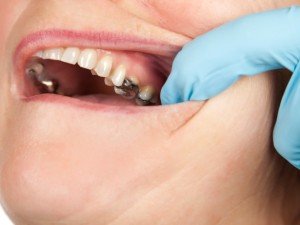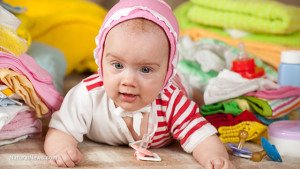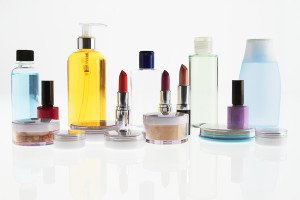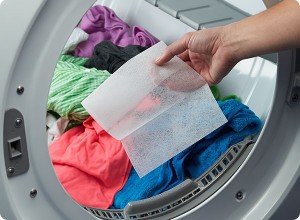Is your antibacterial soap DANGEROUS to your health? EXPERTS SAY YES!!
3 min read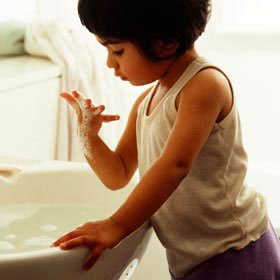
Can getting too zestfully clean be dangerous to your health?
Yes, say infectious disease specialists, who worry that overuse of antibacterial soaps might actually help create drug-resistant mutant germs.
But despite their scientific concerns, a new survey of more than 1,000 soaps on the market reveals that nearly half contain some kind of germicide, according to Dr. Eli Perencevich, an infectious diseases researcher at Beth Israel Deaconess Medical Center in Boston.
Perencevich presented his findings today at a conference held by the Infectious Diseases Society of America in New Orleans.
Soapy Survey
He found that 76 percent of 395 liquid soaps and 29 percent of 733 bar soaps — 45 percent of soaps overall — contained antibacterial agents, such as triclosan and triclocarban.
While hospitals have been using antibacterial soaps for more than 30 years, it is only in the past decade that antibacterial products have hit the consumer market, in everything from soaps to kitty litter to ballpoint pens.
Americans have flocked to the soaps, hoping to sanitize their homes and hands. But the jury is still out on whether they actually work any better at killing or inhibiting the spread of germs than good old-fashioned soap and water, which merely wash away germs before they reach a dangerous level.
Antibacterials may also kill bacteria that actually are helpful to the body because they keep other troublesome bugs in check, experts say.
“There has been no scientific data published to support the claim that adding these compounds to household products prevents infection,” Perencevich says.
Spawning Superbugs
Indeed, recent research suggests these products may encourage the growth of “superbugs” resistant to antimicrobial agents, a problem when these bacteria run rampant, turning into a dangerous infection that cannot be treated with available medication.
Similar growth of drug-resistant strains has already occurred with antibiotics. The overuse and misuse of antibiotics has led to several drug-resistant microbes, such as streptococcus pneumonia and strains of E. coli.
Dr. Stuart Levy, president of the Alliance for the Prudent Use of Antibiotics and a professor of molecular biology at Tufts University School of Medicine in Boston, believes antibacterial soaps are dangerous.
“Triclosan creates an environment where the resistant, mutated bacteria are more likely to survive,” says Levy, who published a study on the germicide two years ago in the journal Nature.
Charles Rock, a researcher at St. Jude Children’s Research Hosptial in Memphis, Tenn., also published work in Nature last month supporting the resistance theory.
“The use of triclosan in these products will lead to the emergence of resistance,” he predicts. “There is no strong rationale for [its] use.”
Soon after Rock’s article, the Soap and Detergent Association and the Cosmetic, Toiletry and Fragrance Association released a statement disputing his findings. It blamed the resistance problem on doctors’ over-prescribing of antibiotics.
“Antibacterial products do not cause bacterial resistance,” Ed Kavanaugh, president of the cosmetics group, said in the statement. “They kill germs, thus breaking the circle of infection.”
Marketing Ploy? But groups like the Association for Professionals in Infection Control and Epidemiology in Washington, D.C., see the use of these antibacterial agents by soap manufacturers purely as a marketing ploy.
“These products imply they lower the risk of infection, which is blatantly untrue,” says Robert Sharbaugh, an epidemiologist in Charleston, S.C., who chairs of APIC’s guideline committee on the topic. “There is a misbelief that if you use this, it will cut down on disease like colds. That’s crazy, because many of these diseases are viral in nature.”
The Federal Trade Commission recently has begun cracking down on some manufacturers for making unsubstantiated health claims regarding products containing the germicides.
Perencevich advises that consumers use these soaps in appropriate situations, such as when caring for a child or a sick relative, but to take caution about using them otherwise.
“With so many of these products on the market, consumers may not even realize they are purchasing soaps that contain antibacterials,” Perencevich says. “Check the ingredients closely.”
Related Stories:
- http://willtaft.com/antibacterial-soap-danger-still-a-hot-topic/
- http://www.huffingtonpost.com/samuel-s-epstein/the-dangers-of-triclosan_b_481323.html
- http://www.mayoclinic.com/health/hand-washing/HQ00407
- http://www.naturalnews.com/032134_antibacterial_soap_fish.html
- http://statenews.com/index.php/article/2010/11/antibacterial_soap_increases_chance_of_antibiotic_resistance_
- http://blogs.scientificamerican.com/guest-blog/2011/07/05/scientists-discover-that-antimicrobial-wipes-and-soaps-may-be-making-you-and-society-sick/
